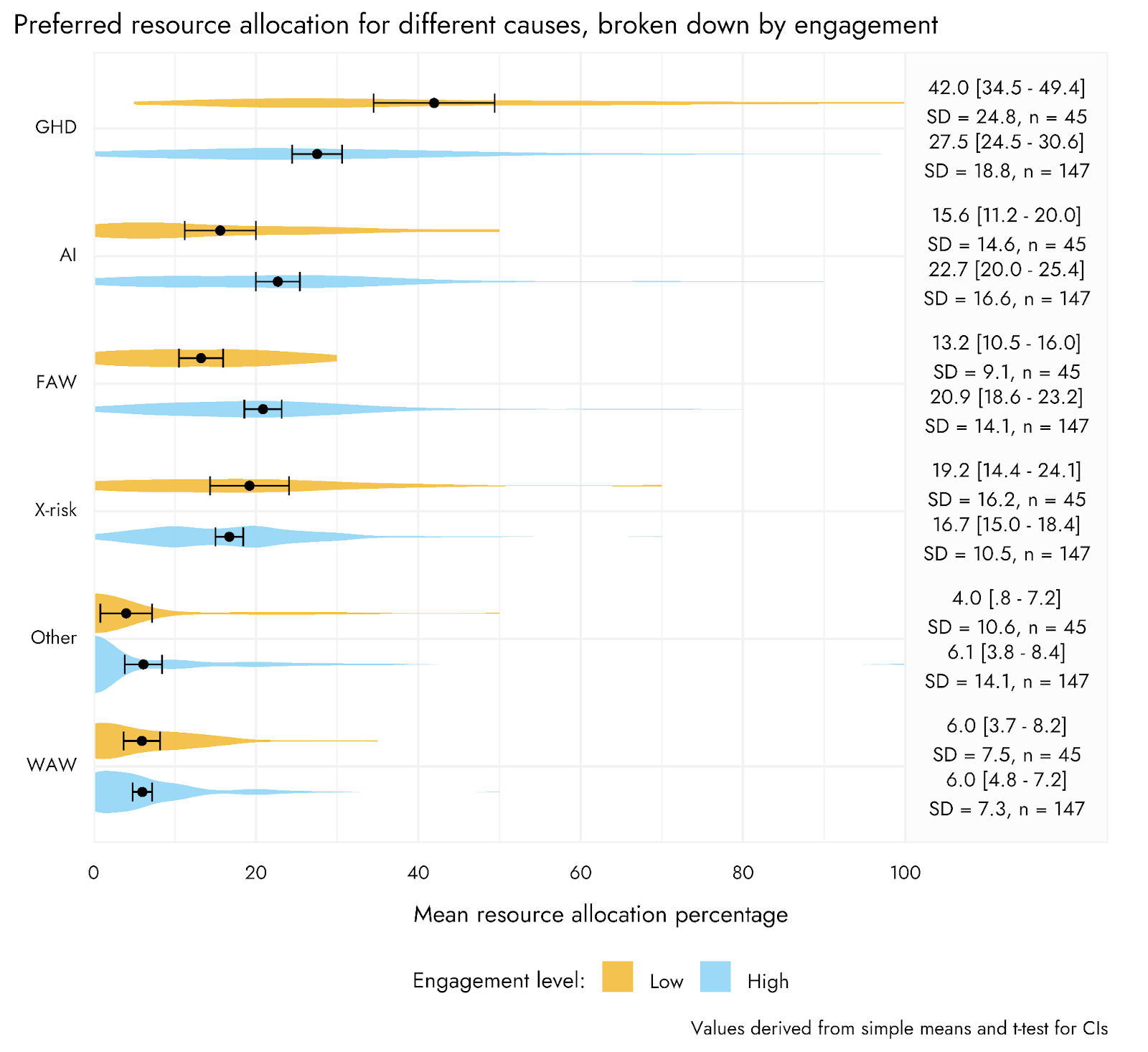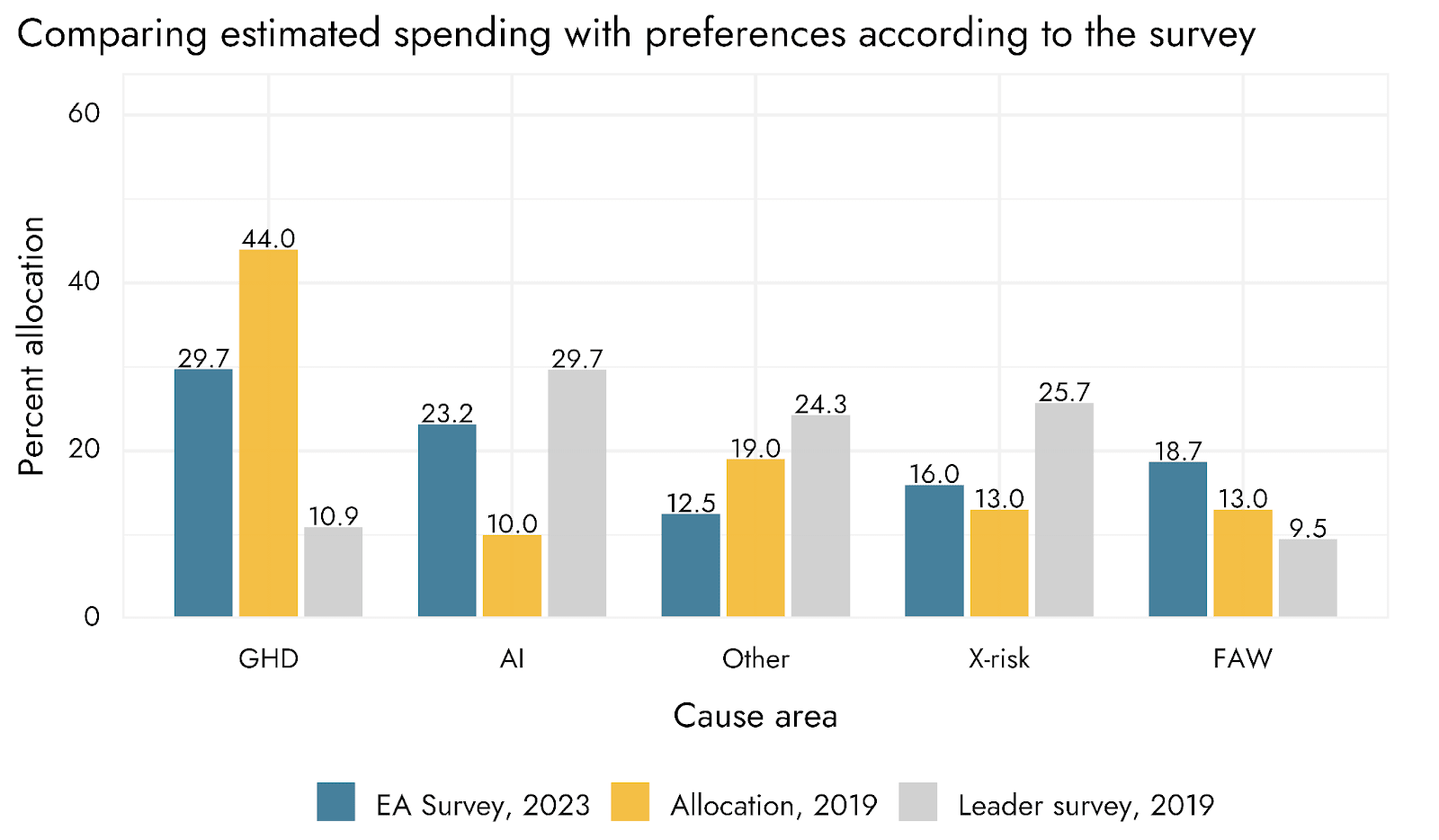"Part one of our challenge is to solve the technical alignment problem, and that’s what everybody focuses on, but part two is: to whose values do you align the system once you’re capable of doing that, and that may turn out to be an even harder problem", Sam Altman, OpenAI CEO (Link).
In this post, I argue that:
1. "To whose values do you align the system" is a critically neglected space I termed “Moral Alignment.” Only a few organizations work for non-humans in this field, with a total budget of 4-5 million USD (not accounting for academic work). The scale of this space couldn’t be any bigger - the intersection between the most revolutionary technology ever and all sentient beings. While tractability remains uncertain, there is some promising positive evidence (See “The Tractability Open Question” section).
2. Given the first point, our movement must attract more resources, talent, and funding to address it. The goal is to value align AI with caring about all sentient beings: humans, animals, and potential future digital minds. In other words, I argue we should invest much more in promoting a sentient-centric AI.
The problem
What is Moral Alignment?
AI alignment focuses on ensuring AI systems act according to human intentions, emphasizing controllability and corrigibility (adaptability to changing human preferences). However, traditional alignment often ignores the ethical implications for all sentient beings. Moral Alignment, as part of the broader AI alignment and AI safety spaces, is a field focused on the values we aim to instill in AI. I argue that our goal should be to ensure AI is a positive force for all sentient beings.
Currently, as far as I know, no overarching organization, terms, or community unifies Moral Alignment (MA) as a field with a clear umbrella identity. While specific groups focus individually on animals, humans, or digital minds, such as AI for Animals, which does excellent community-building work around AI and animal welfare while





I share your impression that it's often used differently in broader society and mainstream animal rights groups than it is by technical philosophers and in the EA space. I think the average person would still hear the word as akin to racism or sexism or some other -ism. By criticizing those isms, we DO in fact mean to imply that individual human beings are of equal moral value regardless of their race or sex. And by that standard, I'd be a proud speciesist, because I do think individual beings of some species are innately more valuable than others.
We can split hairs about why that is - capacity for love or pain or knowledge or neuron count or whatever else we find valuable about a life - but it will still require you to come out with a multiplier for how much more valuable a healthy "normal" human is relative to a healthy normal member of other species, which would be absolutely anathema in the racial or sexual context.